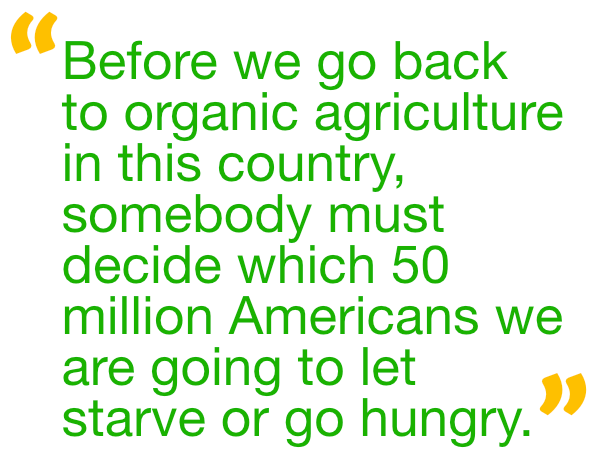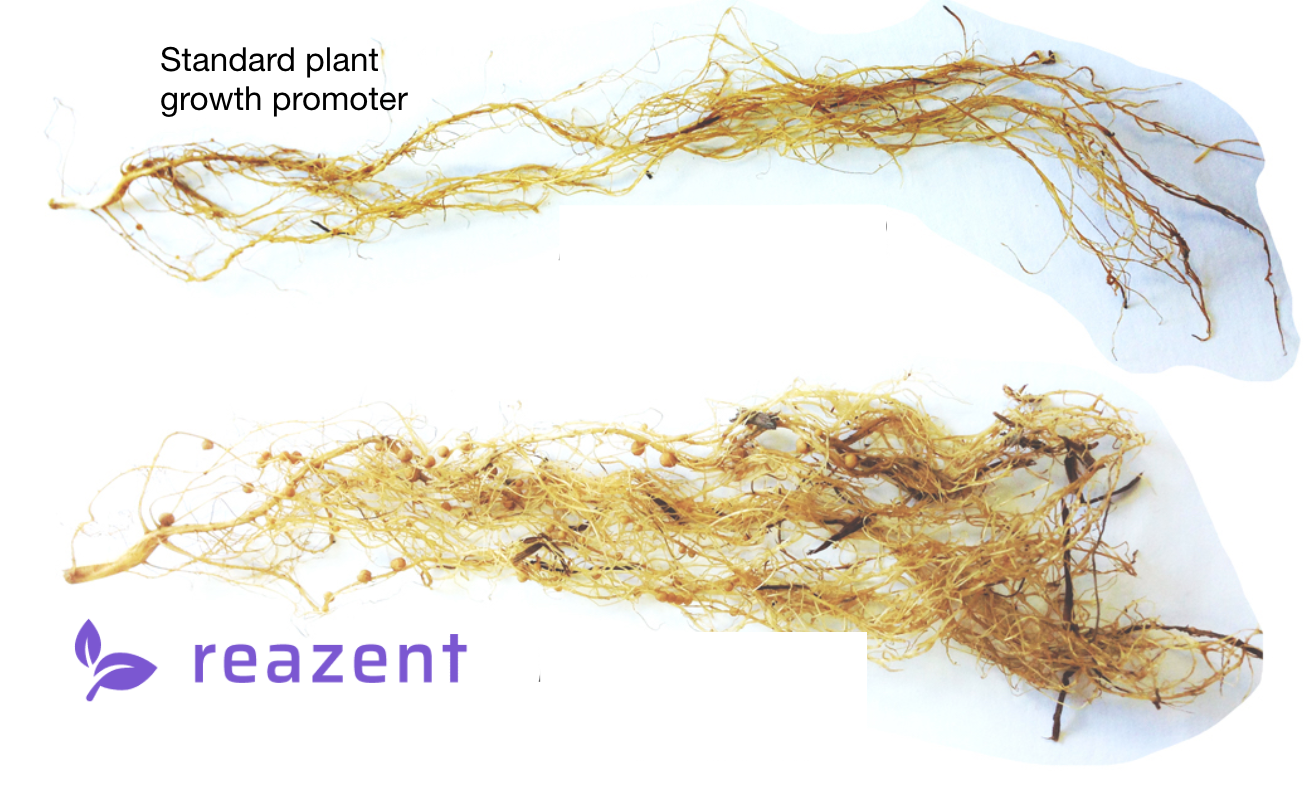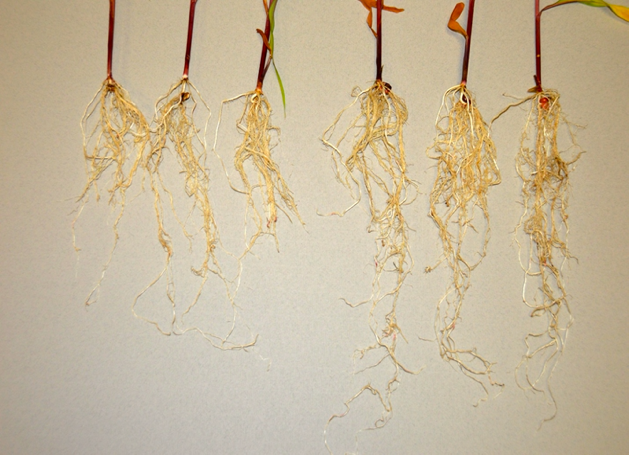
Despite the demand from consumers and environmental benefit, organic agriculture accounts for less than 2% of global agricultural land. Reazent is on a mission to change this by providing biologic products to supercharge plant growth and crop yields. Despite being a young company, they extensive field trials showing the benefit and consistency of their product, with more planned for late 2020 and early 2021. I caught up with Sumit Verma, their CEO, to learn more about their progress and the state of the industry.
Alex: What inspired you to start Reazent, and what was the genesis of your idea?
Sumit: I worked in the chemicals industry for over a decade, and as an insider I encountered first hand some of the biggest challenges the industry faced. Companies grappled with how to reduce the carbon and toxicological footprint of the materials that consumers, industrials, and agriculture use, while retaining their effectiveness and performance. This problem was most evident in agriculture.
Agriculture directly affects human and planetary health, so sustainable agriculture — one that employs organic alternatives rather than synthetic petroleum-based ag-inputs — is beneficial for everyone. However, we learned farmers don’t want to adopt organic alternatives and organic agriculture because they consider it inefficient and leads to reduced income. My scientist colleagues and I had a shared passion to change this. While I was seeing this problem from a practitioner’s point of view, my scientist colleagues were working on developing sustainable alternatives for field applications.

Alex: So how are you replacing chemical ag-inputs?
Sumit: Reazent has developed a patented technology to increase crop yield and control plant pathogens in a wide range of crops such as soybean, peanuts, wheat, kale, and lettuce. Our approach is based on the effect of metabolites produced by soil bacteria. These metabolites up-regulate plant defense and root growth genes, as well as other members of the soil microbiome who in turn produce metabolites which help the crop.
We learned how to do this by studying unique genomic loci present in certain bacterial strains which increase the range and quantity of metabolites produced. We have over one hundred uniquely genotyped strains and hence we can create plant growth and disease control effects in many crops critical to the global agricultural supply chain.
Alex: You’ve been running field studies this year in several crops, tell us about what you’ve found.
Sumit: We have demonstrated the efficacy of our product in increasing both crop yield as well as plant pathogen control in bench-scale, greenhouse, and field scale trials in legume crops such as soybean and peanuts. The results we have obtained so far are fantastic — up to 400% increase in soybean root nodules, up to 30% increase in peanuts above-ground biomass, and up to 35% increase in peanuts pod dry weight. In these trials we are putting our product up against industry benchmarks of synthetic and organic products.

We have several other greenhouse trials underway — including soybean, kale, wheat, and tomato — and are very excited to be getting results by mid November to December. Next, we will be running extensive field trials in soybean in North America, Brazil and India during the next growing season.
Alex: In the chaos that is nature, how do you ensure consistency and predictability for farmers? This seems like a challenge, at least in perception, versus traditional chemicals.
Sumit: Farmers have had mixed experiences with ag-biologicals over the years. Often what works in the greenhouse fails in the field. Moreover, their performance varies in different environmental conditions and geographies.
Knowing this we have focused on meeting the needs of farmers in any geography from day one. Unlike conventional biologicals, our system has a very long shelf life. Secondly, they are highly resistant to adverse environmental conditions. This is because our biologics are based on unique bacterial species that form durable spores — a form that allows them to withstand adverse environmental conditions. When condition are right the bacteria activate and start to have their beneficial effect.
Additionally, we have designed our biological system in a manner that allows them to colonize plant roots and soil effectively. This adds to their consistency and predictability.
Alex: There are a growing number of approaches to biologics in agriculture. What makes you different?
Sumit: A few startups involved in this space are tackling the problem of sustainability through synthetic nitrogen fertilizer replacement. Their biologics can directly fix atmospheric nitrogen, providing an alternative source of nitrogen to the plants. Although this mode of action, if successful, would work on crops that don’t fix nitrogen themselves, it won’t work on leguminous crops like soybeans that fix nitrogen themselves through their root nodules.

We have shown our product increases the number of root nodules significantly in soy, which leads to increased yields. With our library of beneficial soil bacteria we can also work in crops without root nodules, like corn. In these crops we increase immunity, root growth, and vigor of plants through the bacterial secretion of metabolites.
Alex: Regenerative Agriculture is getting a lot of attention as a potential solution for climate change. What’s your take on the role of agriculture, and how do you see Reazent being part of that?
Sumit: Paradoxically, agriculture is a well-known contributor to climate change. This is because a large amount of carbon is released back in the atmosphere due to various farming practices. Therefore, sustainable farming practices such as no tillage farming, crop rotation, and enriching the soil microbiome help in reducing carbon emission from agriculture. If less of carbon in the soil is made available for release in the atmosphere by better utilization of that carbon in the soil itself, the carbon emission from agriculture would come down.
Like the human microbiome in human health, the plant microbiome plays a crucial role in soil health. Recent studies have shown that a rich soil microbiome contributes to improved Carbon Use Efficiency (CUE). This means resident microbes are taking up and retaining carbon in their biomass rather than losing it during respiration. The increased CUE means more carbon is stored in the soil for longer, more beneficial microbes propagate, and plants thrive. Healthy living soil thus benefits humanity by storing more carbon and providing us with healthy nutrient rich crops.
Alex: Finally, tell us about your team. Who are the people building Reazent?
Sumit: I am very proud of my team. They are some of the best business and scientific minds in the sector.
Before starting Reazent, I worked in the chemicals industry for over ten years in a wide range of functions that included innovation, operations, marketing, and sales. Most recently I was with Ashland, a globally renowned specialty chemicals company, where I handled its regional innovation for Asia Pacific. Over the years, I grew to understand the limitations of the chemical industry from the demand side, and what it took to introduce a new product.
Dr. G L Rao is the CTO of Reazent. He is a plant biotechnologist with experience in plant biostimulants. He understands how to translate science into product through his work as a formulation specialist for Tinyfarms-Modgarden where he was involved in the optimization of soilless media and liquid nutrient formulations for greenhouse and indoor gardening. He also co-founded Plasma Agriculture Solutions where he developed cold plasma to treat seeds for improving seed quality and provided services to Argo-industries to perform product trials. Before this he was a post-doctoral Fellow at Faculty of Agriculture, Dalhousie University and at Earth Institute, University College Dublin, Ireland
Our advisory team has experts from the industry and academia.
Dave Warner, a former executive of Indigo, Corteva, and Monsanto advises us on go-to-market strategy and has helped us in building partnerships with potential distributors. Dr. David Mulla is an expert in soil science and precision agriculture. He is helping us build soil expertise that will provide us a competitive advantage in the market. Professor Srienc has three decades of experience in bioengineering and biomaterials. He developed technology to optimize bacterial fermentation and his expertise will help us in product scale-up.
To learn more about Reazent check out their pitch at IndieBio Demo Day on October 28th! To get in touch visit their website at http://reazent.com.
If you’re a startup solving challenges in human and planetary health interested in the IndieBio accelerator, let us know at www.indiebio.co/apply




